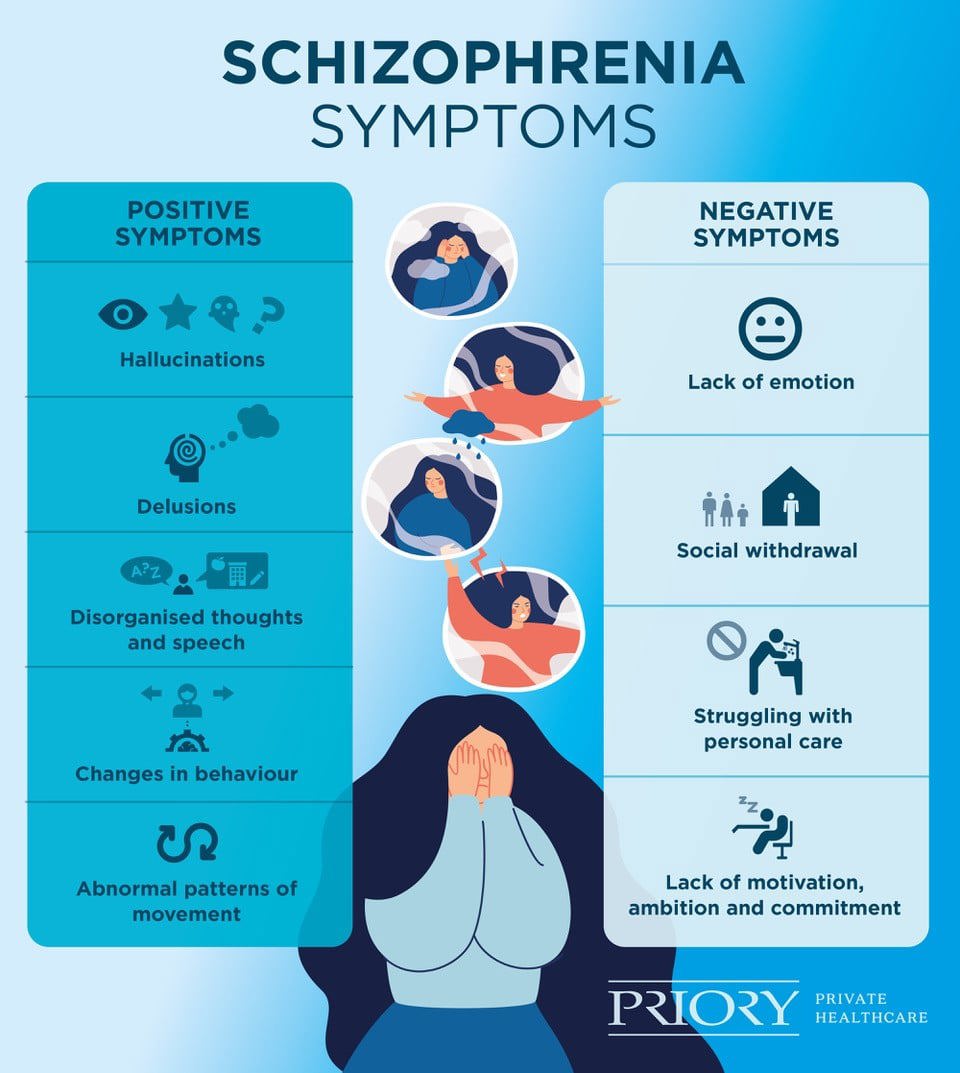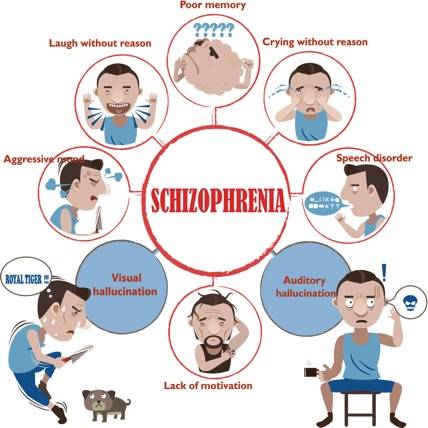Schizophrenia is a severe mental disorder characterized by a breakdown in the relationship between thought, emotion, and behavior. A person with schizophrenia may experience hallucinations, delusions, and disordered thinking. It's important to note that schizophrenia is a complex condition with a wide range of symptoms and severity. Follow us here at Kahoot!
Historical Context
The concept of schizophrenia has evolved significantly over time. While the term itself was coined by Swiss psychiatrist Eugen Bleuler in 1908, descriptions of symptoms resembling schizophrenia can be traced back centuries.
- Early Concepts: Early accounts often conflated schizophrenia with other mental illnesses, such as bipolar disorder or dementia.
- Dementia Praecox: The German psychiatrist Emil Kraepelin introduced the term "dementia praecox" in the late 19th century to describe a group of disorders characterized by early onset and progressive deterioration.
- Schizophrenia: Bleuler proposed the term "schizophrenia" to emphasize the splitting of psychological functions rather than the progressive deterioration described by Kraepelin.
- Modern Understanding: Contemporary research has focused on the biological basis of schizophrenia, including genetic, neurobiological, and environmental factors.

Impact of Schizophrenia on Daily Life
Schizophrenia can profoundly disrupt an individual's life, affecting various aspects of daily functioning.
Core Areas of Impact
- Social Functioning: Difficulty maintaining relationships, social isolation, and withdrawal due to paranoia, delusions, or unusual behavior.
- Occupational Functioning: Challenges in holding a job, completing tasks, or interacting with colleagues due to cognitive impairments and difficulty concentrating.
- Self-care: Neglect of personal hygiene, problems with daily living activities, and difficulties with nutrition and sleep.
- Cognitive Functioning: Impairments in memory, attention, problem-solving, and decision-making, affecting overall independence.
- Emotional Well-being: Experience of negative emotions such as depression, anxiety, and hopelessness.
- Physical Health: Increased risk of physical health problems like heart disease, diabetes, and obesity.
- Legal and Financial Issues: Difficulties managing finances, potential involvement in legal troubles due to impulsive behavior or delusions.
Specifiers for Schizophreniform Disorder
While not as extensive as other diagnostic categories, there is one primary specifier for schizophreniform disorder
With Good Prognostic Features
This specifier is applied when at least two of the following criteria are met:
- The onset of prominent psychotic symptoms within four weeks of the first noticeable change in usual behavior or functioning.
- Confusion or perplexity at the height of the psychotic episode.
- Good premorbid social and occupational functioning.
- Absence of blunted or flat affect.
- Presence of at least one organized or systematic delusion.
The presence of good prognostic features suggests a better likelihood of recovery and a lower risk of transitioning to schizophrenia.

Signs and Symptoms
Schizophrenia is a complex mental disorder characterized by a range of symptoms that affect how a person thinks, feels, and behaves. These symptoms can be categorized into three main groups:
Positive Symptoms
These are added behaviors or experiences not typically present in healthy individuals.
- Hallucinations: Perceiving things that aren't there, such as hearing voices or seeing things that don't exist.
- Delusions: Holding firmly to false beliefs, such as believing others are plotting against them or that they have special powers.
- Disorganized thinking and speech: Difficulty organizing and expressing thoughts clearly.
- Disorganized or abnormal motor behavior: Unusual or unpredictable movements or behavior.
Negative Symptoms
These involve a loss or decrease of normal functions.
- Reduced emotional expression: Difficulty showing emotions or appearing emotionally flat.
- Lack of motivation: Decreased interest in previously enjoyed activities.
- Social withdrawal: Avoiding social interactions.
- Flattened affect: Reduced emotional range.
Cognitive Symptoms
These are difficulties with thinking and memory.
- Problems with attention: Difficulty concentrating or focusing.
- Memory problems: Difficulty remembering information.
- Difficulty understanding information: Trouble processing and understanding information.
It's important to note that symptoms can vary widely among individuals with schizophrenia. Some people may experience primarily positive symptoms, while others may have more prominent negative symptoms. Additionally, cognitive symptoms are often present but may not be as noticeable to others.
Prevalence and Demographics
Prevalence
- Schizophrenia affects approximately 1% of the global population.
- The lifetime risk of developing schizophrenia is around 0.3% to 0.7%.
Demographics
Age of onset: Typically emerges in late adolescence or early adulthood, with a peak onset between ages 16 and 30.
Gender: While the overall prevalence is similar between men and women, there are some differences:
- Men tend to experience earlier onset and more severe symptoms.
- Women tend to have a later onset and a better prognosis.
Socioeconomic status: Individuals from lower socioeconomic backgrounds are at a higher risk for developing schizophrenia.
Urban vs. rural areas: Rates of schizophrenia tend to be higher in urban areas.
Cultural factors: While schizophrenia is a universal condition, the expression and course of the illness can vary across cultures.
Risks and Prognostic Factors
Risk Factors
While the exact causes of schizophrenia remain unclear, several factors are associated with an increased risk:
- Genetics: Having a family history of schizophrenia or other psychotic disorders increases the risk.
- Brain chemistry: Imbalances in neurotransmitters, particularly dopamine, are implicated.
- Environmental factors: Exposure to viruses or toxins during pregnancy, complications during childbirth, and early childhood trauma may increase risk.
- Substance abuse: Substance use, especially during adolescence, can trigger or worsen psychotic symptoms.
- Urban living: People living in urban environments may have a slightly higher risk.
Prognostic Factors
Factors influencing the course and outcome of schizophrenia include:
- Age of onset: An earlier onset is often associated with a more severe course.
- Family history: A strong family history of schizophrenia or other psychotic disorders may indicate a higher risk of a poor outcome.
- Premorbid functioning: Individuals with good social and occupational functioning before the onset of illness tend to have better prognoses.
- Treatment adherence: Consistent medication and therapy are crucial for managing symptoms and preventing relapse.
- Social support: A strong support system can significantly improve outcomes.
- Cognitive impairment: The severity of cognitive deficits can impact functional abilities and quality of life.
Culture-Related Diagnostic Issues
Culture can significantly influence the presentation, interpretation, and treatment of schizophrenia. This can lead to challenges in diagnosis and care.
- Cultural beliefs and expressions: Some cultural beliefs or practices might be misinterpreted as psychotic symptoms. For example, certain religious or spiritual experiences might be mistaken for hallucinations or delusions.
- Stigma: Cultural stigma associated with mental illness can prevent individuals from seeking help, leading to delayed diagnosis and treatment.
- Communication barriers: Language and cultural differences can hinder effective communication between the clinician and the patient, leading to misunderstandings and misdiagnosis.
- Cultural idioms of distress: Different cultures express distress in various ways, which can be mistaken for psychotic symptoms.
Gender-Related Diagnostic Issue
Gender can also influence the presentation and course of schizophrenia.
- Age of onset: Men tend to experience earlier onset of symptoms compared to women.
- Symptom presentation: There might be some differences in the types of symptoms experienced by men and women. For example, women may be more likely to experience depressive symptoms.
- Course of illness: Women tend to have a better prognosis with fewer negative symptoms, but they may be at higher risk for developing metabolic side effects from antipsychotic medications.
- Treatment response: There might be differences in treatment response between men and women.
Clinicians must be aware of cultural and gender-related factors to ensure accurate diagnosis and appropriate treatment for individuals with schizophrenia.
Functional Consequences
Schizophrenia can have a profound impact on an individual's life, affecting various areas of functioning.
- Social impairment: Difficulty maintaining relationships, social isolation, and withdrawal due to paranoia, delusions, or unusual behavior.
- Occupational dysfunction: Challenges in holding a job, completing tasks, or interacting with coworkers due to cognitive impairments and difficulty concentrating.
- Self-care difficulties: Neglect of personal hygiene, problems with daily living activities, and difficulties with nutrition and sleep.
- Financial difficulties: Challenges in managing finances, leading to debt, homelessness, or reliance on others for support.
- Legal issues: Engagement in behaviors that can lead to legal trouble, such as property damage, threats, or violence.
Suicide Risk in Schizophrenia
A person with schizophrenia is at an increased risk of suicide compared to the general population. Several factors contribute to this elevated risk:
- Symptoms: Hallucinations, Delusions, and severe depression can increase suicidal ideation and behavior.
- Impaired judgment: Difficulty understanding the consequences of actions can lead to impulsive decisions.
- Hopelessness: A sense of hopelessness and despair is common in schizophrenia and can contribute to suicidal thoughts.
- Substance abuse: Often comorbid with schizophrenia, substance abuse can increase the risk of suicide
Differential Diagnosis
Differential diagnosis involves distinguishing schizophrenia from other conditions that may present with similar symptoms. It's crucial for accurate diagnosis and appropriate treatment.
Conditions to consider
- Schizophreniform disorder: Similar to schizophrenia but with a shorter duration of symptoms (less than six months).
- Brief psychotic disorder: Even shorter duration of symptoms (less than one month).
- Schizoaffective disorder: Combines symptoms of schizophrenia and mood disorders (major depressive or bipolar).
- Delusional disorder: Primarily characterized by delusions without other psychotic symptoms.
- Mood disorders with psychotic features: Bipolar disorder or major depressive disorder with psychotic symptoms.
- Substance-induced psychotic disorder: Psychotic symptoms caused by substance abuse or withdrawal.
- Psychotic disorder due to a medical condition: Underlying medical conditions can induce psychotic symptoms.
- Delirium: Acute onset of confusion, disorientation, and fluctuating levels of consciousness.
Comorbidity
Comorbidity refers to the presence of one or more additional disorders or conditions alongside a primary diagnosis. Schizophrenia is often accompanied by other mental and physical health conditions.
Common Comorbidities
- Mood disorders: Depression and bipolar disorder are frequently co-occurring conditions.
- Substance abuse: Alcohol and drug misuse are common among individuals with schizophrenia.
- Personality disorders: Particularly antisocial, borderline, and avoidant personality disorders.
- Obsessive-compulsive disorder (OCD): Characterized by recurrent, intrusive thoughts and repetitive behaviors.
- Post-traumatic stress disorder (PTSD): Often related to traumatic experiences.
- Metabolic disorders: Including obesity, diabetes, and cardiovascular disease.
Treatment & Management
Management of schizophrenia involves a comprehensive approach that addresses both the symptoms of the disorder and its impact on daily life. It typically includes:
Medication
- Antipsychotics: These medications are the cornerstone of treatment for schizophrenia. They help to reduce hallucinations, delusions, and disorganized thinking. Both typical and atypical antipsychotics are available.
- Mood stabilizers: In some cases, mood stabilizers may be used to manage mood swings or bipolar-like symptoms.
- Antidepressants: If depression is present, antidepressants might be considered, but they should be used cautiously as they can potentially worsen psychotic symptoms.
Psychotherapy
- Cognitive-behavioral therapy (CBT): Helps individuals understand and challenge delusional thoughts, improve coping skills, and reduce stress.
- Social skills training: Teaches individuals how to interact with others and improve social functioning.
- Family therapy: Involves family members in the treatment process to provide support and education.
Additional Strategies
- Case management: Provides coordination of care and support services.
- Vocational rehabilitation: Helps individuals develop skills for employment or education.
- Supported employment: Provides job placement and support in the workplace.
- Crisis intervention: Offers immediate support during acute phases of the illness.
- Adherence support: Helps individuals maintain medication and treatment regimens.
Lifestyle Factors
- Adequate sleep: Sufficient sleep is essential for mental health.
- Stress management: Techniques like relaxation and meditation can be helpful.
Additional Treatment Options
- Electroconvulsive therapy (ECT): May be considered for severe or treatment-resistant cases.
- Rehabilitation: Focuses on improving daily living skills and vocational abilities.
- Case management: Provides coordination of care and support services.
It's important to note that treatment for schizophrenia is often a long-term process, and there is no cure. However, with appropriate treatment and support, many individuals with schizophrenia can lead fulfilling lives